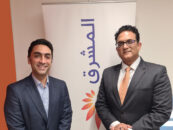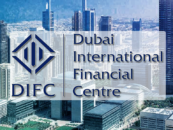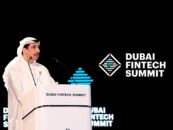
Roland Berger Teams with DFINITY to Transform Recycling with Blockchain-Based Credits
16. November 2023Roland Berger has recently embarked on an ambitious project in partnership with the DFINITY Foundation, a Swiss-based non-profit organization known for its contributions in the blockchain field and developing the Internet Computer. This collaboration aims to develop the first-ever global standard for Voluntary Recycling Credits (VRC), employing blockchain technology to address the escalating global waste problem.
Through this partnership, The DFINITY Foundation will develop the underlying technology for the first global standard to incentivize recycling activities. The groundbreaking feature of this credit is that it is based on blockchain, ensuring secure, transparent tracking of offset activities.
The concept of VRC, which draws inspiration from the Voluntary Emission Reduction model in the carbon market, is a new approach in the recycling sector. The credits represent a specific amount of recycled material, such as aluminum or plastic. The introduction of blockchain into this system is intended to be a critical component that ensures the integrity and effectiveness of the VRC standard.
Blockchain Tech to Ensure Transparency and Trust
Blockchain technology, known for its decentralized and secure nature, offers a transparent and auditable record of recycling credits and transactions. This transparency will be crucial as it fosters trust among all stakeholders, including waste producers and recyclers, in the accuracy and legitimacy of the credits.

Pierre Samaties
“Selecting the right blockchain technology that harmoniously balances decentralization, security, usability and storage space is key for a project of this importance. Hence, we are happy to announce that we selected The DFINITY Foundation as our technology partner for the VRC project,”
said Pierre Samaties, a Partner at Roland Berger who leads the global Digital Assets, Web3 and Metaverse Practice.

Dominic Williams
Dominic Williams, Founder and Chief Scientist of the DFINITY Foundation, mentioned how honored the non-profit was to be selected by Roland Berger team to collaborate on the WRC.
“This initiative aligns with the core values of our team at DFINITY and Internet Computer, as we always look to ensure the blockchain remains at the forefront of sustainability and work with leading enterprises. The integration of the VRC into the Internet Computer is a major step forward for the future of the program, as DFINITY and Roland Berger collaborate in making a true difference in the world of today and tomorrow.”
Sustainability and Efficiency of the Internet Computer Blockchain
The DFINITY Foundation, known for its R&D efforts in blockchain with over 250 patents, will be responsible to develop the underlying technology. They will utilize the Internet Computer blockchain, which is unique in its capacity to host complex applications like social networks and enterprise systems.
This blockchain is noteworthy for its sustainability credentials as well; it boasts an energy consumption rate significantly lower than many other blockchain networks and traditional Web2 technology. Impressively, the Internet Computer has been operational for over two years without any downtime and handles over 750 million transactions daily.
Collaborative Efforts and International Support
This initiative, first unveiled in Paris alongside the INC-2 meeting, is a product of a collaborative effort that began in June 2023. It involves various stakeholders including the BEEAH Group, the International Solid Waste Association, and receives backing from the United Arab Emirates Ministry of Climate Change and Environment, as well as the COP28 Presidency.
The long-term vision for VRC extends beyond just waste management. It is about facilitating the adoption of extended producer responsibility schemes and revisiting production chains to diminish the dependency on raw materials, replacing them with recycled alternatives. This, in turn, reduces landfill waste, supporting the broader objectives of the Paris Agreement.
Benefits for Businesses and Environmental Impact
These blockchain-based credits will be advantageous for companies seeking to minimize their environmental footprint, providing a verified means to compensate for the waste generated and put into the market, especially useful for businesses in regions lacking robust recycling infrastructure. Additionally, companies with excess recycling capabilities can trade their credits, thus creating a dynamic market.
Featured image credit: edited from freepik







No Comments so far
Jump into a conversationNo Comments Yet!
You can be the one to start a conversation.